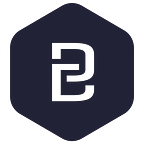Questions:
- What is TokenNet?
- Who will operate the nodes?
- What is MainNet(Genesis of BOS Platform) and how will this differ from TokenNet?
- What is not included in TokenNet?
- Will there be transaction fees?
- How do I mine BOScoin?
- What is a Secret Seed?
- What happens if I lose the Seed?
- What is a Quorum?
- How many transactions can the network handle?
TokenNet
We have received a number of questions regarding the BOS Platform TokenNet, as such, and in preparation, we have prepared the following FAQ for the community. We aim to update this FAQ as there may be changes in plans or as we receive other questions from the community.
What is TokenNet?
TokenNet is the BOS Platform’s initial release of the blockchain with limited functionality to allow the community to transact BOS tokens among the network and at exchanges accepting BOS tokens (the actual transactions will be specified by the exchanges in this case, i.e. what BOScoin can be transacted for).
Who will operate the nodes?
To ensure stability with the quorum structure and the absence of Freezing and Confirmation Rewards, nodes will be operated by the BOS team until MainNet launch.
What is MainNet(Genesis of BOS Platform) and how will this differ from TokenNet?
BOScoin uses Stellar Consensus Protocol to reach consensus. MainNet will be a hard fork from TokenNet with having mFBA as its consensus protocol; so Genesis is a forking of the TokenNet. At launch of MainNet, nodes will be rewarded Freezing & Confirmation Rewards and core features of BOS Platform such as Trust Contracts, Congress Network and Commons Budget will follow.
What is not included in TokenNet?
Unfortunately only basic functions such as remittance and trade are offered on TokenNet. The cool stuff that is BOScoin such as Trust Contracts, Congress Network, Commons Budget, Freezing & Confirmation Rewards and mobile wallets will not be available. TokenNet is for the stable circulation of the coins before the launch of MainNet.
Will there be transaction fees?
Yes, for each transaction, there will be a flat rate of 0.01 BOS but this flat rate is currently under review and need to be finalized. Transaction fees are not necessary but act as a defense mechanism against DDOS attacks. The transaction fees generated will be distributed once a week to BOScoin holders according to the amount they hold. For MainNet, 70% of the transaction fees will be distributed to node operators and 30% will go towards the Commons Budget.
How do I mine BOScoin?
BOScoin’s consensus protocol will be based on mFBA and there is no mining process such as Bitcoin or Ethereum. Instead you are given Freezing Rewards for every unit (10,000 BOS) you freeze and Confirmation Rewards if you operate a fully functional node. However, Freezing and Confirmation Rewards will be given after MainNet launch so for TokenNet, no confirmation rewards will be given.
What is a Secret Seed?
Every BOScoin account is given a Public Address and a Secret Seed. A Public Address functions like a bank account number. You need somebody’s Public Address in order to send BOScoin to that person and the same vice versa. Your Public Address can be open to the public but you must keep your Secret Seed secret! This is the PIN to your account. It proves you are you!. Make sure your Secret Seed is kept away from public eyes.
What happens if I lose the Seed?
If you do not have your Secret Seed, access to your account will be restricted, and even the developers of BOScoin will not be able to help you, so DO be careful not to lose your Secret Seed. Store it somewhere safe and do not let others know of your Secret Seed (when we release a mobile wallet after MainNet launch, the mobile wallet should store this within the phone, but you will still need to ensure you keep the Secret Seed safe if you wish to change phones and access your wallet on different devices).
What is a Quorum?
The concept of Quorums, in our blockchain, originate from Stellar Consensus Protocol’s Federated Byzantine Agreement System. A Quorum can be defined as a set of nodes sufficient to reach agreement and intersecting Quorums will eventually lead to a system wide consensus. Though quorum structures for TokenNet will be quite similar to that of SCP, mFBA offers a slightly different approach to reach consensus and quorums will be operated in a slightly different way. A more detailed explanation on quorums and how consensus is made in BOScoin, please read previous article, DPoS & mFBA and BOScoin white paper.
How many transactions can the network handle?
We anticipate 1,000 transactions per second for BOS Platform and TokenNet and we are currently conducting tests to confirm this.
